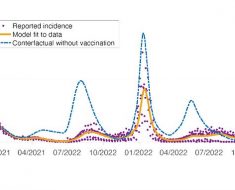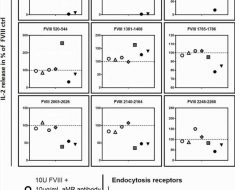Veterans who experienced the combination of low depression, high social support, and high psychological resilience as they left military service were most likely to report high well-being a year later.
Neither demographic and military characteristics nor trauma history emerged as strong predictors of veterans' well-being when considered in the context of other factors. Although most predictors were similar for women and men, depression was a stronger predictor of women's well-being.
Every year, more than 200,000 U.S. service members transition out of the military. Although most military veterans can be expected to successfully navigate this transition, a substantial number of individuals struggle to adapt to post-military life.
In an effort to identify the combination of background factors that best predict U.S. military veterans' post-military well-being the researchers sampled more than 7,100 veterans.
Neither demographic and military characteristics nor traumatic life experiences emerged as important predictors of veterans' well-being in the context of other factors, suggesting that their impact on veterans' well-being is likely carried through other factors addressed in the study.
Instead, researchers found that those who reported the combination of high depression, low social support, and low psychological resilience shortly as they leave service were the most likely to report poor well-being a year later.
"These findings support the value of screening for these risk factors and intervening with veterans who report this combination of factors at the time they leave military service to reduce veterans' risk of poor post-military well-being," explained corresponding author Dawne S. Vogt, Ph.D., a research scientist in the Women's Health Sciences Division, National Center for PTSD at VA Boston Healthcare System and professor of psychiatry at Boston University School of Medicine.
Although prior research has examined the role that depression, social support, and psychological resilience play in U.S. veterans' post-military mental health and functioning, this study provides new insight into how these factors work together to impact veterans' well-being.
"The fact that the worst well-being was reported by veterans with high depression and low social support underscores the particularly important role that the combination of these two factors are likely to play in veterans' post-military well-being. Moreover, the finding that higher psychological resilience moderated the impact of depression on veterans' well-being suggests that those individuals who are most resilient may be better able to cope with depression when it is experienced," added Vogt.
Boston University School of Medicine
Vogt. D., et al. (2021) Identifying factors that contribute to military veterans’ post-military well-being. Applied Psychology: Health and Well-Being. doi.org/10.1111/aphw.12252.
Posted in: Healthcare News
Tags: Depression, Healthcare, Medicine, Mental Health, Psychiatry, Psychology, Research, Trauma
Source: Read Full Article





